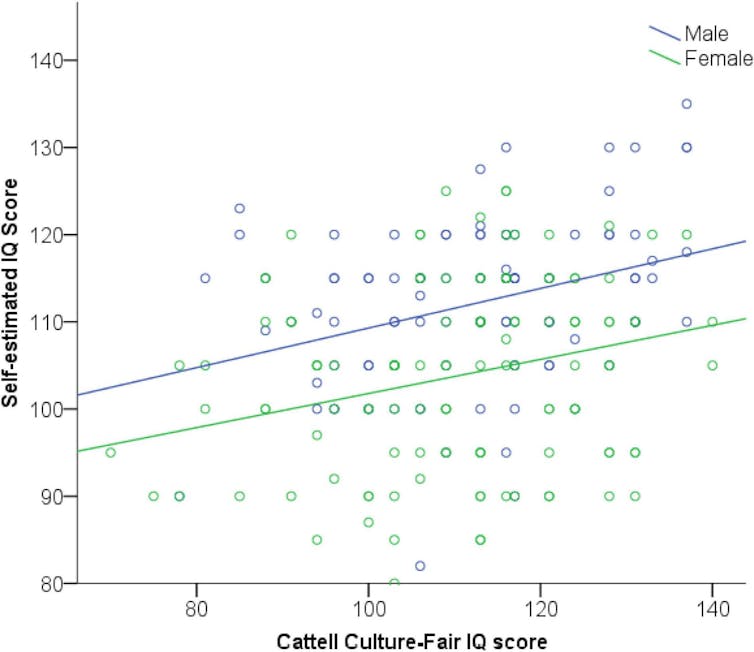
David Reilly, Griffith University
When asked to estimate their own intelligence, most people will say they are above average, even though this is a statistical improbability. This is a normal, healthy cognitive bias and extends to any socially desirable trait such as honesty, driving ability and so on. This pattern is so common that it’s known as “the above-average effect”.
In a recent study, my colleagues and I explored how consistently men and women estimated their own intelligence or IQ (intelligence quotient). We also assessed measures of general self-esteem and masculine and feminine personality traits.
We found the strongest predictors of overestimating IQ were biological sex and then psychological gender. Being born male and having strong masculine traits (both men and women) were associated with an inflated intellectual self-image.
Male hubris, female humility.
Despite people’s overall tendency to overestimate their own intelligence, individuals vary.
Some doubt their intellectual ability while others greatly overestimate their talents.
In general, though, when asked to estimate their IQ, men think they’re significantly brighter than they are, while women’s estimates are far more modest.





























































































